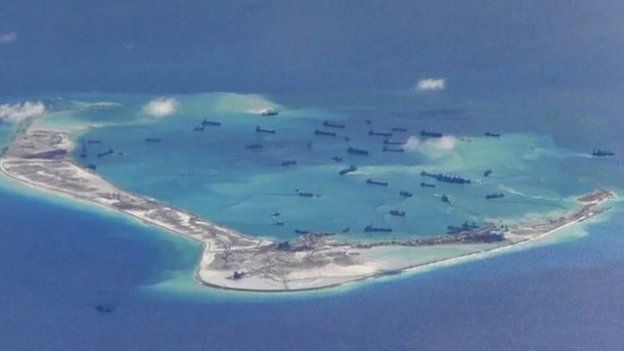China Pushes For Non-Inclusion Of South China Sea Issue On ASEAN Forum Statement
China is pushing Southeast Asian countries to shelve references to issues associated with the South China Sea in the statement the countries will issue following the regional defense talks in Malaysia. A senior defense official from the United States revealed that the push of China may result to doubts on the signing ceremony that is typically held with Association of South East Asian Nations ministers.
The official said this situation emerged due to the push of China to remove any references to the contentious issue associated with the region from the final joint declaration. Due to this, some ASEAN countries considered it inappropriate and reflect on the rift in the region due to the militarization and reclamation activities of China.
The US official also said while it was a decision by the ASEAN, the US thinks not releasing a statement is better compared to releasing one that avoids references to the militarization and reclamation activities of China in the South China Sea. The gathering brings together the defense ministers of the ten Southeast Asian countries together with ministers from other countries, including China, Japan, India, Australia and the US. The meeting was initially held in 2006 and serves as a platform for the promotion of regional peace and stability.
Japan and the United States are pushing to have their concerns about the region included in the statement. However, China already stated in February that it was against including the issue in the meeting.
Malaysia, the host of the forum, agreed to include in the final statement the issues about the South China Sea, according to a defense official from the Philippines. While the official declined to provide any details, it was noted that the Philippines was satisfied with the statement. The Philippines has consistently contended that a stronger stance should be taken on the territorial ambitions of China.

China Pushes For Non-Inclusion Of South China Sea Issue On ASEAN Forum Statement - image credit: bbc.com
The official revealed that the reference was better compared to removing it from the document altogether. But, the statement could have been better. Malaysia is currently negotiating to release an agreement that is acceptable to China and the United States, according to a senior Malaysian official.
The official also said it was necessary for Malaysia to “balance it out” and Defense Minister Hishamuddin Hussein already has a plan. The meeting comes after a US warship sailed close to one of the man-made islands of China in the Spratly archipelago in a freedom-of-navigation patrol. Aside from China, a number of other countries have claims in the South China Sea where over $5 trillion in global trade passes through each year. The other claimant countries are the Philippines, Malaysia, Brunei, Taiwan and Vietnam.
Defense Secretary Ash Carter of the United States had a forty-minute meeting with the defense minister of China, Chang Wanquan, recently. The two discussed the issues concerning the South China Sea. Chang reportedly told Carter that the Chinese people will not put up with any violations on the sovereignty and interests of China. Chang added that they are insisting that the US should stop any dangerous moves that threaten the sovereignty and security interests of China.
The meetings of the ASEAN have become the regular venue for countries to endorse a stronger stance against the territorial ambitions of China. The issue has been tackled in previous forum statements of the ASEAN.
The ASEAN foreign ministers meeting in Brunei in 2013 resulted to a communiqué emphasizing the importance of peace, stability and security in the South China Sea along with the promotion of a peaceful resolution to any disputes associated with the region.